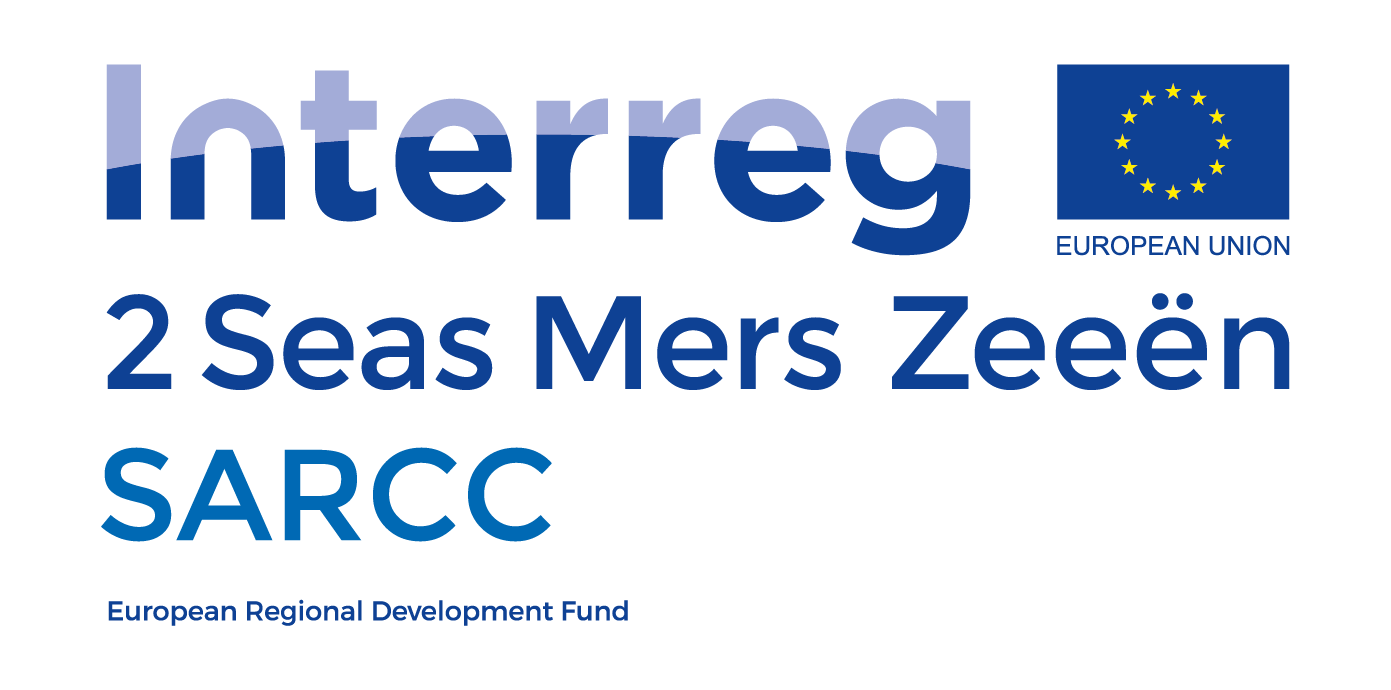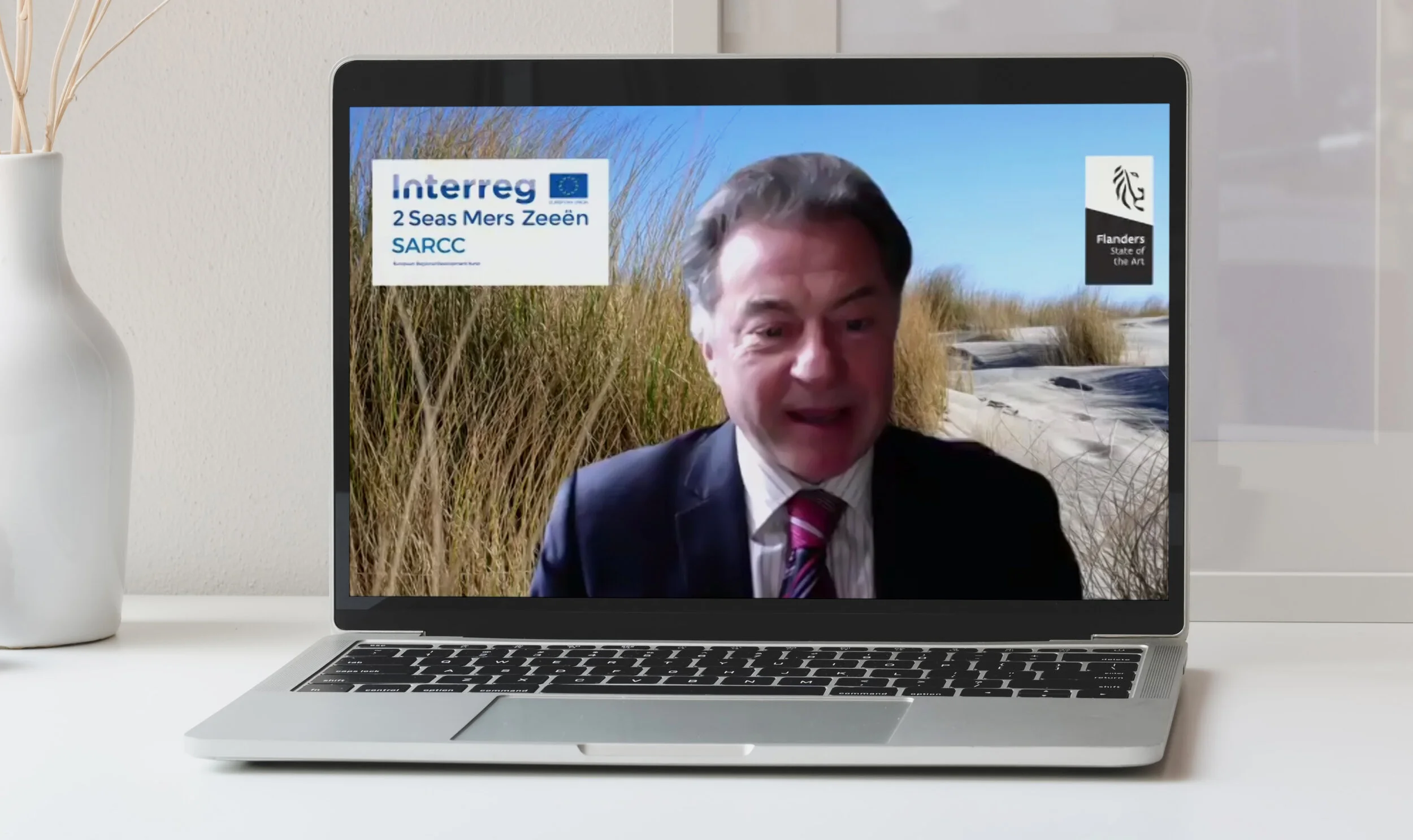SARCC 2020 Seminar Overview
In November the first SARCC-seminar was held. Due to the COVID-19
epidemiological situation this first seminar was held digitally. The was
organised by the Flemish Department for Environment, Spatial Planning.
A series of pre-recorded video presentations about different themes and
subjects was provided. These videos carefully introduced the key concepts
to the public. These videos are still online and are a nice informative document
for everybody who’s interested in coastal nature-based solutions.
Check them out here: https://www.sarcc.eu/2020-seminar!
Peter Van Besien - MDK Agency for Maritime and Coastal Services
The videos follow a nice timeline: starting with a general explanation about the challenges future climate and coastal change will bring to the coastal cities in our project region. From there we informed the public that coastal environments always have been a dynamic and evolving environment, also explaining the different Nature-Based Solutions (NBS) for coastal protection. These videos and presentations formed a sturdy base to follow the live panel conversation about the need, pros and cons, and other considerations of on the actual day of the seminar (on November 18th 2020).
Both in the videos and the panel conversation we tried to entice the spectators and attendees to look beyond the more obvious “grey” infrastructure solutions, by focussing on the added benefits provided by the different NBS and possible challenges that the implementation of NBS might entail. The panel consisted of:
Garry Momber - Maritime Archaeology Trust
Jan Seys (moderator, VLIZ, Flemish Institute for the Sea)
Bert Van Severen (co-moderator; Department of Environment
and Spatial Development)Patrick Meire (University of Antwerp)
Peter Van Besien (MDK – agency for Maritime and coastal services)
Garry Momber (Maritime Archaeology Trust)
After a short introduction, the panel conversation started. Around 120 people tuned in, showing a big amount of interest in this topic. This discussion was structured around one general theme: How can we cooperate to achieve a climate resilient coastline in Flanders?
Almost every stakeholder knows what the challenges and goals are: climate change leads to rising sea-levels, which necessitates a safe, sustainable and resilient coast, protected against flooding. The question is, how to get there?
Professor Patrick Meire highlighted the way that climate change impacts the
Belgian coast, and offered some perspectives on how it can be made more
durable and resilient. He also emphasised the need for a systemic approach
around NBS.
Garry Momber then stressed the values of a long term perspective on coastal
changes. It can show people how significantly coasts can change over the
course of time, explaining that they are actually very dynamic processes. At
some points we can learn a lot from history; since people worked with nature
instead of against it. We should not be afraid of changes. Peter Van Besien
highlighted the main problems of the Belgian coast during storms and how
climate change might aggravate some of the existing issues. He explained
that NBS could help to tackle a lot of the current issues. He stressed the need
for pilot projects to test, but also to show the public how it works. The main
adagio of the Agency for Maritime and Coastal Services is: “soft coastal
solution wherever possible, hard solutions if needed”, since some parts of the
coastline (like harbours) are hard to defend via NBS.
After the panel conversation there was some time for some questions from the
public. They touched a variety of subjects, ranging from technical questions,
public acceptance and possible cooperation possibilities. Not every question
could be answered live so we’ve recorded them all and these questions will
serve as inspiration for a whole bunch of other SARCC seminars and workshops.
To be continued!
We hope to see you attending the next SARCC event in April 2021!


